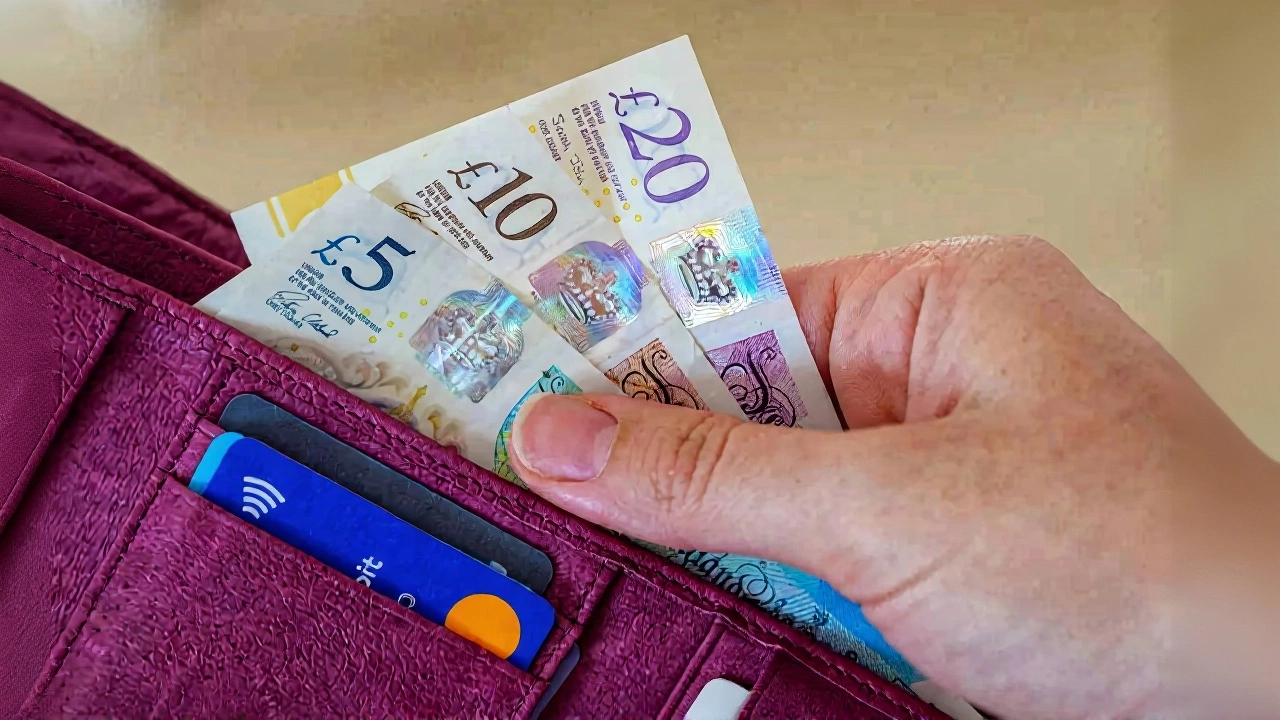The Department for Work and Pensions has confirmed that millions of vulnerable people across the United Kingdom, Channel Islands, Isle of Man, and Gibraltar will receive a tax-free £10 Christmas Bonus — again, just as they have for decades. No application needed. No paperwork. Just a quiet, automatic deposit into bank accounts, typically marked DWP XB, before the holidays. It’s not much money in today’s economy, but for many, it’s the only extra cash they’ll see between November and January — and it arrives when bills pile up and heating costs spike. The payment, tied to the first full week of December, is a ritual as British as mince pies and queues at the post office.
How It Works — And Who Gets It
The Department for Work and Pensions doesn’t ask anyone to apply. If you’re receiving one of 20 qualifying benefits during the designated ‘qualifying week’ — usually the first full week of December — the money shows up. No forms. No calls. No waiting. It’s automatic, designed to reach those who need it most without the bureaucratic friction that often accompanies public aid.
Eligible benefits include the State Pension, Personal Independence Payment (PIP), Attendance Allowance, Carer’s Allowance, and several disability and war pensions. Even those on Pension Credit (guarantee element) qualify. But if you’re not receiving any of these — even if you’re on Universal Credit — you’re out of luck. The rules are narrow, precise, and unchanged since the 1990s.
A £10 Tradition That Won’t Change
Here’s the odd thing: the bonus has stayed at £10 for years — decades, actually. It was introduced under the Social Security Contributions and Benefits Act 1992, and since then, inflation has eaten away at its value. Back in 1992, £10 was roughly equivalent to £25 today. Now, it’s barely enough for a turkey sandwich and a bottle of wine. Yet no government — Labour or Conservative — has ever increased it. Not in 2008, not in 2020, not in 2024. Why? Officials say it’s a symbolic gesture, not a lifeline. But for pensioners living on £120 a week, £10 feels like a lifeline.
Some ministers have quietly acknowledged the gap. In 2022, a DWP official told MPs the bonus was "a longstanding tradition" and not designed to offset cost-of-living pressures. That’s the quiet truth: it’s a token. A nod. A way to say, "We haven’t forgotten you." But it’s also a reminder of how little the social safety net has grown.

Who’s Left Out — And Why It Matters
Millions of working-age disabled people on Universal Credit don’t qualify. Neither do those on Jobseeker’s Allowance or Employment and Support Allowance during the first 13 weeks. Even carers who’ve just started receiving Carer’s Allowance might miss out if their claim wasn’t active during that exact week. And if you moved from the UK to Spain or Portugal after Brexit? You’re out. The rules don’t extend to the EEA anymore — a change that caught many retirees off guard.
It’s not just about the money. It’s about recognition. The Christmas Bonus is one of the few benefits that doesn’t come with stigma. No means test. No interviews. Just a simple, dignified payment. For many elderly recipients, it’s the only time of year someone from the government reaches out without asking for something.
What’s Next?
Don’t expect a raise this year. The DWP hasn’t signaled any change. The 2024 qualifying week is expected to be December 2–8, with payments arriving by December 18 — as they have since the 1990s. But pressure is building. Charities like Age UK and the Child Poverty Action Group have repeatedly called for an increase, arguing that £10 is now a cruel joke. The Trades Union Congress has joined the call, saying it’s time to modernize the benefit.
For now, though, the system remains unchanged. The money will still appear. The bank statements will still say DWP XB. And millions will still use it to buy a new pair of socks, a box of chocolates, or a phone call to a grandchild they haven’t seen in months.

Background: A Benefit Born in the 1990s
The Christmas Bonus wasn’t always part of the UK’s welfare system. Before 1992, it was an ad hoc payment made during festive seasons, often tied to specific benefit types or political cycles. The Social Security Contributions and Benefits Act 1992 formalized it into law, ensuring it became a permanent, universal feature — but only for those on specific long-term benefits. The £10 figure was chosen as a compromise: enough to be meaningful, not enough to disrupt benefit thresholds. It’s a relic of a different era — one where inflation was lower, pensions were more generous, and the state’s role was still seen as a safety net, not a last resort.
Even in 2009, during the financial crisis, the bonus remained at £10. In 2020, during the pandemic, when food banks were overwhelmed, the amount didn’t budge. That consistency is both comforting and troubling. It’s reliable, yes — but it’s also a mirror reflecting how little has changed for the most vulnerable.
Frequently Asked Questions
Who qualifies for the Christmas Bonus?
You qualify if you’re ordinarily resident in the UK, Channel Islands, Isle of Man, or Gibraltar during the first full week of December and receive at least one of 20 specified benefits — such as State Pension, PIP, Attendance Allowance, or Carer’s Allowance. Universal Credit recipients do not qualify, nor do those on Jobseeker’s Allowance unless they’ve transitioned into the long-term phase of Employment and Support Allowance.
Do I need to apply for the Christmas Bonus?
No. The Department for Work and Pensions automatically identifies eligible recipients based on benefit claims active during the qualifying week. If you’re eligible, the £10 will appear in your account as "DWP XB" — no action required on your part.
Why hasn’t the bonus increased with inflation?
The £10 amount has remained unchanged since the 1990s, despite inflation reducing its real value by over 60%. The government has never officially explained why it hasn’t been adjusted, but officials have called it a "symbolic" payment rather than a cost-of-living support. Critics argue it’s now a hollow gesture that fails to reflect today’s economic reality.
Can I get the bonus if I live abroad?
Only if you’re living in the Channel Islands, Isle of Man, or Gibraltar. UK nationals living in European Economic Area countries or Switzerland no longer qualify after Brexit. Even if you paid National Insurance for decades, residency during the qualifying week is mandatory — and that means being physically present in the UK or its territories.
When will the payment arrive this year?
The qualifying week is expected to be December 2–8, 2024, with payments typically deposited by December 18. The exact date isn’t published in advance, but historical patterns show it arrives at least one week before Christmas. If you don’t see it by December 20, contact your local Jobcentre Plus or Pension Service.
Does the bonus affect other benefits?
No. The £10 Christmas Bonus is tax-free and doesn’t count as income for means-tested benefits. It won’t reduce your Universal Credit, Pension Credit, or Housing Benefit. The DWP explicitly states it won’t affect any other payments — which is why it’s one of the few benefits that doesn’t come with hidden penalties.
